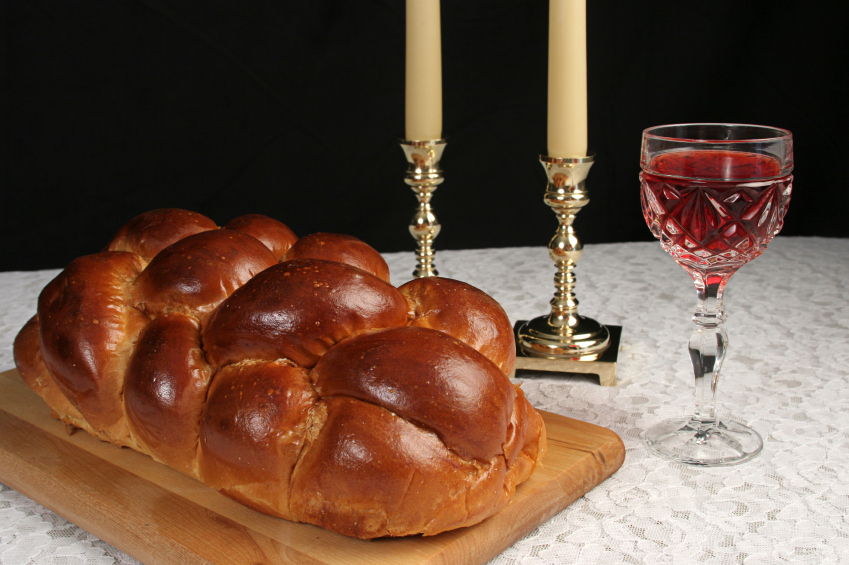
What does kosher mean is answered by knowing Jewish dietary rules
You hear someone say, “That’s not kosher.” What does kosher mean? It means proper. If not kosher, it’s not appropriate or pure.
In Judaism, kosher equals something proper for use or eating and adhering to the laws governing fitness, based on ceremonial or dietary laws.
Kosher or ‘kasher’, comes from from the Hebrew word ‘Karshrus,’ meaning appropriate or pure and fit for consumption. Non kosher foods are strictly forbidden.
Meats allowed, according to the laws of the Torah, include game and cattle possessing cloven foods and which chew the cud. A pig chews the cud but does not have split (cloven) hooves. A camel does not have split hooves but chews the cud. These meats are taboo. They did not fulfill both conditions. Kosher meats include cows, bulls, lambs, sheep, veal, springbok and goats.
Meat slaughtering takes place in a ritual called Schochet, requiring painless slaughter. Jewish law forbids causing pain to animals. Unconsciousness is immediate and death occurs almost instantly.
Once slaughtered, the Kosher supervisor and team treiber the carcass, removing certain forbidden veins and fats. The meat soaks in room temperature water for 30 minutes. Blood is drawn out by placing the soaked meat on salting tables, after which coarse salt is applied to both sides of the meat for 60 minutes.
In a kosher kitchen, certain birds are banned including swan, eagle, pelican, owl, stork or vulture. Kosher birds include duck, goose, turkey and chicken.
Milk products are okay if derived from pure animals. Impure cattle and game, such as donkey milk, are not acceptable sources. Dairy products cannot contain meat foodstuffs or derivatives.
The observant never mix milk and meat products.The Torah states, “You may not cook a young animal in the milk of its mother.” In kosher homes, cooking milk and meat separately is required and the two items are never served or eaten simultaneously. This is meticulously adhered to and extends to the handling of utensils, keeping meat (Fleishig) utensils separate from milchig (dairy) utensils.
After a Jewish person eats meat, he must wait one-, three- or six hours before consuming dairy. After eating dairy, meat can be consumed any time.
Fish possessing scales and fins are acceptable but shellfish (lobsters, shrimp, mussels and crabs) are not. Fish like salmon or tilapia are kosher foods.
Eggs are okay if provided by kosher birds and not containing blood. Before eating, an egg must be thoroughly examined for blood.
Products grown on plants, in soil, on bushes or trees are proper; however, if insect infestation occurs in a fruit or vegetable the bugs must be removed before consumption. Insects are not pure.
Grape-derivatives or grapes are proper for consumption when the grapes originate in a kosher winery, prepared under stringent rabbinical supervision.
Kosher people drink wine but casein, bull blood and gelatin are prohibited from the wine-making process. Kosher enzymes and bacteria are used for fermentation.The utensils used when harvesting and processing grapes are properly cleansed under supervision. A bottle can only be utilized once.
Observant Jewish people adhere to the mandates of Halacha, Jewish religious law. No hybridization occurs in the vineyard. Grapes cannot be crossed with other plants.
Maintaining a kosher kitchen requires hard work and much attention to details. Separate dishes are needed for meat and dairy product. Dairy and meat equipment are stored separately. Separate tablecloths, place mats and napkins are necessary.
~
Meat and dairy cannot be cooked simultaneously in the same oven. Metal sinks are kosher when cleaned with boiling water but porcelain sinks are not “kasherable,” meaning they cannot be made kosher between meat and dairy meals.
Not all Jews keep kosher, considering the rules outdated. Most Orthodox Jews fully heed the laws of kashrut, but many Conservative, Reform and Reconstructionist Jews are also kosher, although some are less stringent than the Orthodox.
